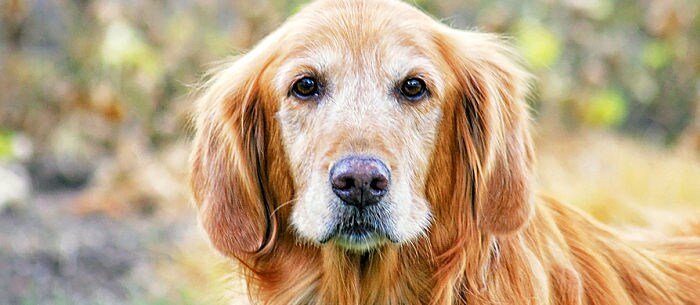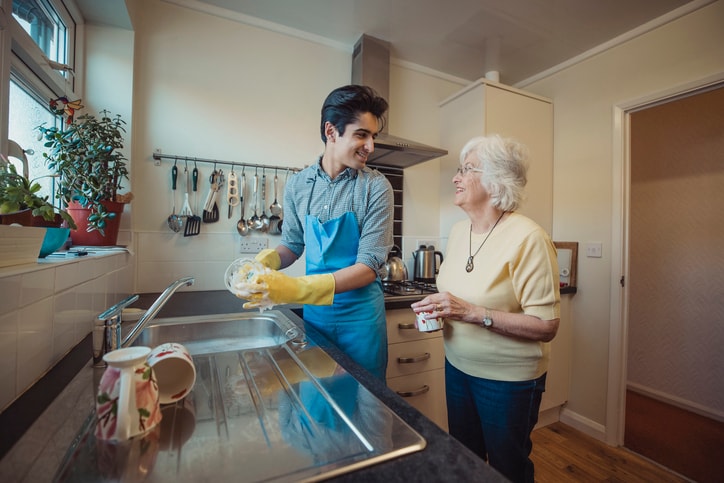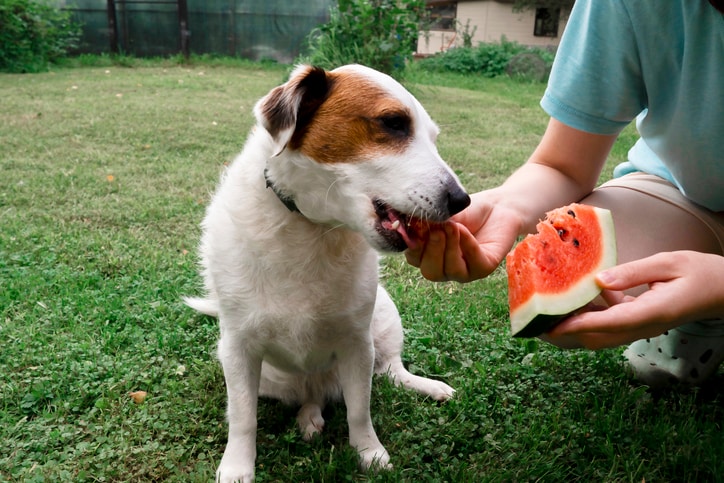You saw it. It really happened. He ate it. So, why do dogs eat poop? While sometimes you think of your dog as a person — especially when he cocks his head and looks at you in that understanding way — the minute you see him engaging in this behavior, you realize he’s all dog.
Weird as it may seem, there is an official answer for your question “why do dogs eat poop?” The technical term being coprophagia, why would man’s best friend would engage in something so unsavory? Here’s the scoop on this odd but common doggie behavior.
Potential Reasons
- There May be a Medical Problem
If your dog is eating his poop it could be a sign of a medical problem, like poor nutrition. If you see your dog eating poop, “it is important to notify your veterinarian,” says Dr. Amanda Landis-Hanna, the director of veterinary medicine at i4C Innovations. The vet will be able to determine if a nutritional imbalance is present. During the check up, “[y]our veterinarian may recommend a deworming or may test a stool sample to ensure no diseases were transmitted.”
- It Could be a Cleaning Habit
Was your dog kept in a small cage? “Dogs stuck in small cages often develop a poop-eating habit,” explains Tonya Wilhelm, a leading dog trainer and behavior specialist with 20 years of experience. When dogs don’t get out of a cage, they are forced to pee and poop in it. “Sometimes dogs eat the poop just to get rid of it,” says Wilhelm.
- He Could be Skittish
You might unknowingly be training your dog to eat poop. If you reprimand your dog, he might learn that you don’t like poop in the house. Mission accomplished? Not necessarily. “Your dog might continue her pooping routine, but will now eat her feces as a way to get rid of the evidence,” says Wilhelm.
- He Might be Bored
If your dog is left alone for long periods, he might become bored. Wilhelm says that bored dogs might eat poop just because it’s there. (Just like you eat the leftovers in your fridge!) To avoid this, “introduce environmental enrichment, such as games, a dog walker or doggy day care,” says Dr. Landis-Hanna.
How to Stop the Behavior
- Keep an Eye Out
If you have a poop eater on your hands, you can train your dog to stop. Supervision is the best method. “You must supervise your dog and redirect him to something else,” says Wilhelm. Put your dog on a leash when you take him outside to relieve himself. Then pick up the poop right away. Dr. Landis-Hanna recommends using a head harness. This gives “more control of the head and neck, which can help discourage eating feces while on walks or hikes.”
- Try a Little Zest
While many people recommend putting hot sauce on your dog’s droppings, your dog can smell it and will avoid it but will still happily eat the “au naturel” version. “Try mixing spinach, pumpkin or pineapple with your dog’s food,” recommends Wilhelm. This makes the poop taste bad to some dogs. “Depending on the size of your dog, put either a teaspoon or a tablespoon in your dog’s food,” says Wilhelm. She admits, though, that this is a hit-or-miss treatment. If it’s going to work, it will do so right away.
- Block it Off
Have another furry friend? If your dog is eating your cat’s poop from the litter box, the best method is to make the box off limits to your dog (but not your cat or you’ll have a whole other problem on your hands!). Putting a hooded cover over the litter box is one method. Putting a baby gate across the door to the litter box room that your kitty can run under (but your dog can’t) is another.
Is Eating Poop Harmful?
Poop eating is a common behavior among dogs, Wilhelm assures pet parents. “You don’t have to worry about your dog being directly harmed by poop-eating behavior,” she says. However, it is an unsanitary habit. “Many diseases may be transmitted by fecal-oral contact (fecal debris entering the mouth),” notes Dr. Landis-Hanna. She advises that your dog could wind up with hookworms, roundworms or parasites like giardia and coccidia, so report the behavior to your vet and seek out expert advice when you have a concern.
Concerned about other things your pup may be munching on? Learn about these 12 Toxic Plants for Dogs.
Laura Agadoni is a pet writer and pet owner whose articles appear in various publications, such as The Daily Puppy, Pets on Mom.me, The Nest, Tom’s of Maine, The Penny Hoarder and Trulia.
* This article is for general informational purposes only. It is not intended nor implied to be providing medical advice and is not a substitute for such advice. The reader should always consult a health care provider concerning any medical condition or treatment plan. Neither Care.com nor the author assumes any responsibility or liability with respect to use of any information contained herein.


